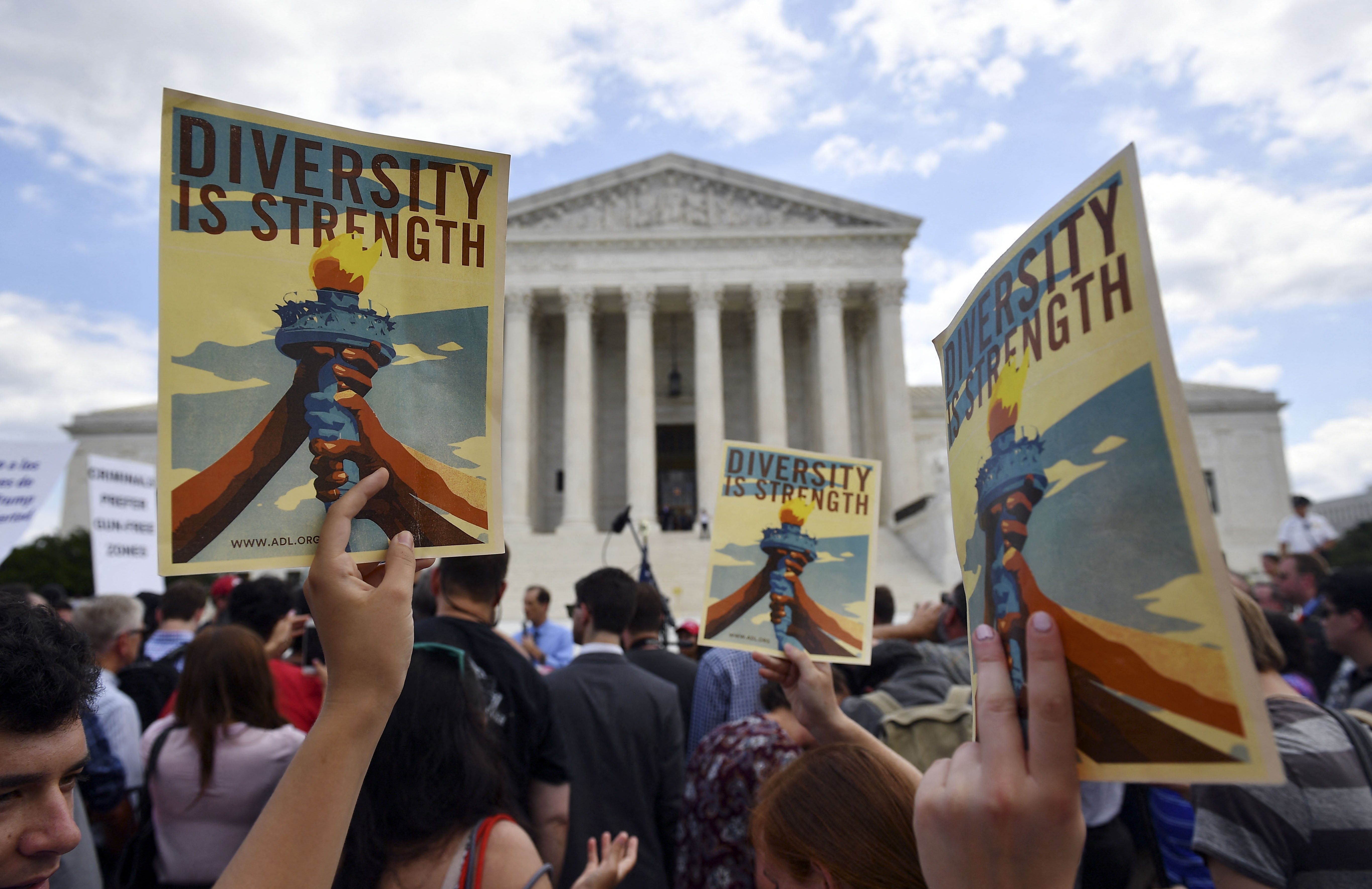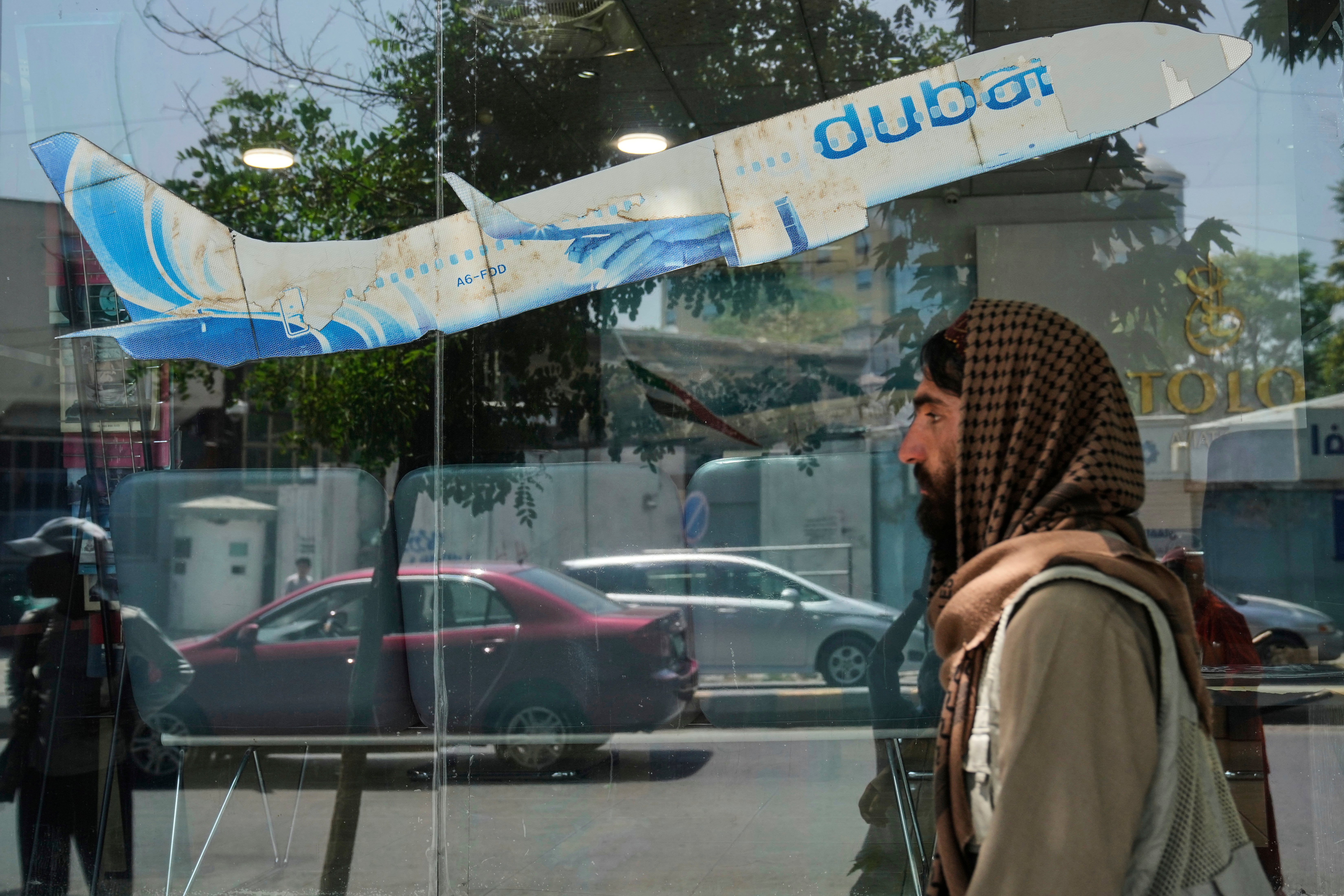Marco Rubio’s State Department is funneling $250 million from refugee services to pay immigrants to leave the country as Donald Trump bans entry to the United States from more than a dozen nations, The Independent has learned.
The money is being moved from the State Department’s Migration and Refugee Assistance, which is overseen by the Bureau of Population, Refugee and Migration, with a mission to “reduce illegal immigration” and aid refugees “fleeing persecution, crisis or violence and seek durable solutions for forcibly displaced people,” according to its website.
But under Rubio’s radical restructuring of the department, the refugee bureau’s mission is now explicitly focused on efforts to “return illegal aliens to their country of origin or legal status.”
At least $250 million from the State Department will support the Department of Homeland Security and “Project Homecoming,” the Trump administration’s plan to “provide a free flight home and an exit bonus to encourage and assist illegal aliens to voluntarily depart the United States,” a spokesperson told The Independent.
Those funds typically are used to provide protection to refugees entering the United States and help pay for their resettlement. Instead, they’ll be used to pay for flights and cash incentives to get people to leave.
A notice to the Federal Register from Deputy Secretary of State Christopher Landau on May 7 states that deporting immigrants will bolster the “foreign policy interests” of the United States. The notice does not mention the funds to DHS.
Reuters first reported the money transfer.
Last month, the administration announced a program allowing people to “self-deport” through the CBP Home app. Those immigrants will receive “financial and travel” assistance — including $1,000 “paid after their return to their home country has been confirmed through the app.”
“If you are here illegally, self-deportation is the best, safest and most cost-effective way to leave the United States to avoid arrest,” Homeland Security Secretary Kristi Noem said in a statement at the time.
Administration officials claim that people who use the app to report their own removal will be provided an opportunity to return to the country legally at another time. But under current law, anyone living in the United States for more than six months without permission cannot return as an immigrant for at least three years. Immigrants who were in the country for more than a year could be blocked from reentering for at least 10 years.
Immigrants with a record of deportation also are more likely to face lengthy waiting periods, or outright denials, when applying for visas.
Immigration lawyers called it a “trap” and “a deeply misleading and unethical trick.”
“No one should accept this without first obtaining good legal advice from an immigration attorney or other qualified representative,” according to an advisory from the American Immigration Lawyers Association.
“We’re gonna pay each one a certain amount of money and get them a beautiful flight back to where they came from, and they have a period of time, and if they make it, we’re gonna work with them so that maybe someday, with a little work, they can come back in,” Trump told reporters in the Oval Office last month.

With the funding boost, DHS and “implementing partners” will “assist Project Homecoming participants with obtaining necessary travel documents, arrange a free flight home, and provide an exit bonus upon confirmation through the CBP Home App that return has been completed,” a State Department spokesperson told The Independent.
Rubio’s reshuffling of the sprawling State Department — reflecting the president’s American First diplomacy and drastic cuts to the federal workforce — reduces staff by 18 percent and guts work across 300 bureaus and offices, according to a 100-page memo sent to Congress.
The cuts target bureaus like the Office of Global Women’s Issues and a division that supports the resettlement of Afghans in the United States.
Rubio’s plan also establishes an Office of Remigration, echoing a term used among far-right and white nationalist groups who support the mass removal of immigrants.
The proposed office would serve as a “hub for immigration issues and repatriation tracking” and “interagency coordination” for “removals/repatriations.”
That office would also support “the voluntary return of migrants to their country of origin or legal status.”

During his campaign, Trump pledged to remove “criminal” immigrants. But his efforts to ramp up deportations to meet his campaign promises have included summary removals without court hearings, courthouse arrests, and canceling visas and humanitarian protections for tens of thousands of lawfully present immigrants.
On Wednesday, the president banned people from a dozen countries from entering the United States entirely, with restrictions placed on entry from several other countries.
Refugee and asylum advocates are sounding the alarm against Trump’s revival of his so-called “Muslim bans” from his first term in office, which were repeatedly blocked in federal courts and then rescinded by Joe Biden.
Shortly after taking office, the Trump administration froze refugee admissions, blocking people fleeing famine and war from countries like Afghanistan, Sudan and the Democratic Republic of Congo.
Resettlement groups were blindsided. In February, the administration also abruptly announced plans to terminate contracts with refugee resettlement and assistance groups 24 hours after a federal judge ordered the government to restore funding to aid organizations.
But last month, the administration opened refugee admissions to a group of white South Africans that the president claims are victims of a “genocide.”
“While national security is an important priority, indiscriminate restrictions against entire nationalities should not supersede the merits of an individual visa application,” according to Krish O’Mara Vignarajah, president of Global Refuge, a nonprofit organization that supports refugees entering the United States.
“We are deeply concerned that this ban could undermine our humanitarian leadership, delay or derail family reunifications, and significantly impact our economy and labor force,” she added.
Shawn VanDiver, president of Afghan refugee group Afghan Evac, called Trump’s reinstatement of the travel ban “political theater” and a “moral disgrace.”
Full list of the 19 countries hit by Trump’s newest travel ban
Musk goes scorched earth and says he is the reason why Trump won in 2024
A timeline of Donald Trump and Elon Musk’s tumultuous relationship
A Harvard acceptance fulfilled a dream for a student in Ethiopia. Trump's order stands in his way
!["[T]he First and Fifth Amendments Require ICE to Provide Information About the Whereabouts of a Detained Person"](https://images.inkl.com/s3/publisher/cover/212/reason-cover.png?w=600)






